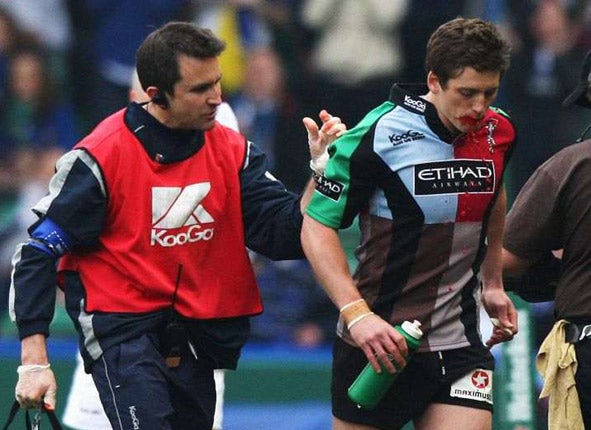James Lawton: Dishonour is no longer just a problem – it's a disease
Sport can surely never have known such momentum in the matter of organised deception

Your support helps us to tell the story
From reproductive rights to climate change to Big Tech, The Independent is on the ground when the story is developing. Whether it's investigating the financials of Elon Musk's pro-Trump PAC or producing our latest documentary, 'The A Word', which shines a light on the American women fighting for reproductive rights, we know how important it is to parse out the facts from the messaging.
At such a critical moment in US history, we need reporters on the ground. Your donation allows us to keep sending journalists to speak to both sides of the story.
The Independent is trusted by Americans across the entire political spectrum. And unlike many other quality news outlets, we choose not to lock Americans out of our reporting and analysis with paywalls. We believe quality journalism should be available to everyone, paid for by those who can afford it.
Your support makes all the difference.There is, we now have to assume, no limit on the power of sport to peddle corruption, to lie and deceive right up till the point where the dismal game is up. Sport, we liked to think until quite recently, was still about glory but it is official now: its greatest call is to vigilance.
How else can we react to the accumulating and terrible sense that nothing we see on a rugby field or a motor racing track or a football pitch is quite what is presented?
When Boris Onishchenko, a Soviet fencer, was exposed as a most calculating of cheats at the Montreal Olympics the feeling of shock was stunning. There had been much speculation about blood doping by runners at those Olympics, but Onishchenko's crime was so brazen and irrefutable, the basic technology of a wired epée so plain, the first horror and disbelief was quickly replaced by the conviction that surely such an outrage could never happen again.
The beast had shown its head and only negligence by the authorities would allow its reappearance.
When, 33 years on, Renault's team principal Flavio Briatore and Pat Symonds, Director of Engineering, walked away yesterday from their team and surely what they like to describe as their sport, you can only wince at the naivety of that first reaction to the worst and most shameless of cheating.
There has of course always been contamination on the edges of sport but never before have we seen the willingness of not just one desperate individual sportsman, but whole groups of them seeking to subvert the basis of the competition to which they were supposedly dedicated.
It is as though the age of anti-sport has arrived suddenly like the monster fruit of some malignant vine.
The Renault case is surely the worst, more wretched even than rugby's "Bloodgate" scandal, in that Harlequins, the guilty club, were ultimately engaged in self-harming, as opposed to the Renault conspiracy, now at least tacitly admitted by the resignation of Briatore and Symonds, where the lives of drivers, stewards and spectators were put at risk.
There is also another quite sickening dimension. It is that before Briatore decided not to challenge the accusations of Nelson Piquet and his father that the Renault team ordered a crash in a carefully choreographed and successful plan for Piquet Jnr's team-mate Fernando Alonso to win the Singapore Grand Prix last year, he made one last desperate throw.
He charged the Piquets' with blackmail. He darkened even the muddy pool which has been lapping around Formula One for some time now, and which indeed many have thought had reached a high water mark with massive industrial espionage and the admission of reigning champion Lewis Hamilton that he had lied under orders from McLaren team officials. It was, we learnt yesterday, still another brittle hope. Sport has never known, surely, such ferocious momentum in the matter of organised deception.
Where the individual sports most afflicted by the epidemic go now is no doubt surely a matter of hand-wringing and hope.
At the weekend Bernie Ecclestone, the commercial rights holder of Formula One, reacted sharply to suggestions that his sport had been somewhat passive in the face of the Piquet claims. He said that he accepted that the affair carried a huge threat to the credibility of Formula One and the matter would be pursued with great force and resolved as quickly as possible.
Yesterday that promise appeared to have been made good at high speed indeed.
However the implications run deeply into every corner of sport, just as they did a few days earlier when Dean Richards, the great rugby player at the heart of "Bloodgate", suggested that a three-year ban was disproportionate.
What sport is obliged to do, increasingly as a matter of survival rather than merely good practice, is to say that cheating is not a problem but a degenerative disease that has to be fought to the death. Otherwise, there will be an increasing temptation to pronounce the whole idea of it if not dead, certainly in an advanced state of decay.
Join our commenting forum
Join thought-provoking conversations, follow other Independent readers and see their replies
Comments